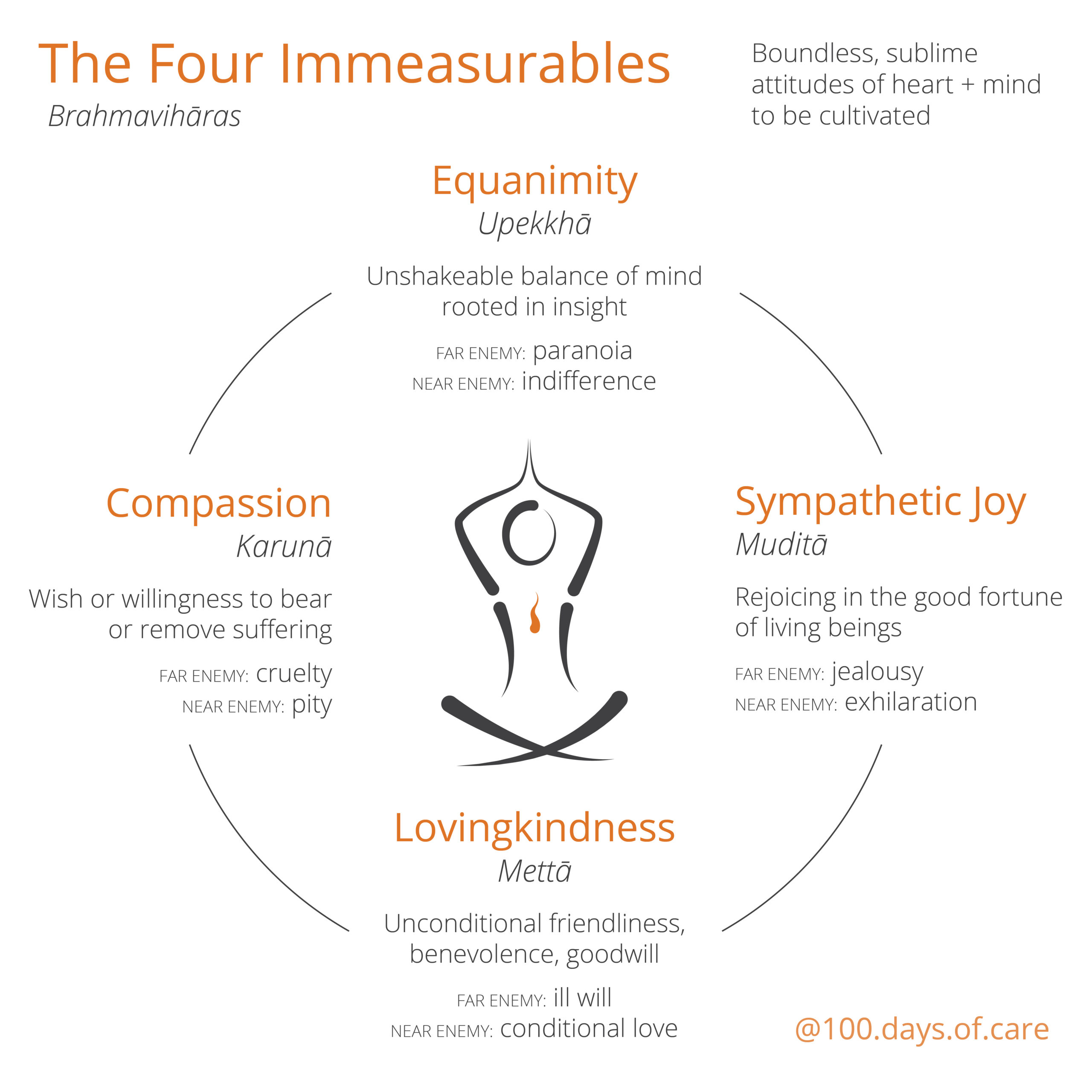In addition to being one of the ten parami, lovingkindness also appears in another collection of teachings, as the first of Four Immeasurables (Brahmaviharas), which are the boundless sublime attitudes of enlightened mind.
When lovingkindness is in our heart-mind, we see ourselves and others with eyes of kindness. This gives rise to a natural, spontaneous wish for well-being, peace, joy and ease.
One way we can deepen our understanding of what lovingkindness is, is by understanding what it is NOT. Buddha called these ‘enemies’ and the enemies of lovingkindness are given as ill-will (far enemy) and conditional love (near enemy).
What does it mean to say something is a ‘far enemy’?
It’s like saying they are not close to each other. In fact, ill-will, dislike, hatred, aversion are all describing states that are far from lovingkindness. Far enemies are easy to see.
What does it mean to say something is a ‘near enemy’?
Conditional love is considered a ‘near enemy’ — meaning it’s close enough to lovingkindness that we might mistake it as being the same. But if our kindness is conditional, it will disappear as conditions change (and conditions are always changing)!
As a practice, we use our understanding of the ‘near enemy’ to INVESTIGATE and REFINE the love we experience.
Does it change when conditions change? Do we need ourselves or others to behave in a particular way to earn love? Or can we hold a loving wish for ourselves and others regardless of what is happening?

